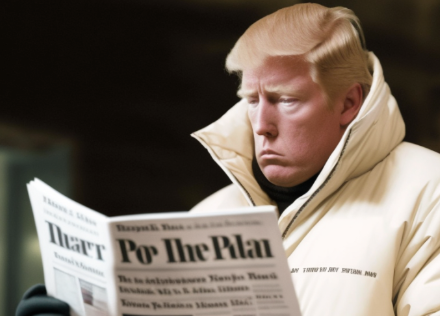$TSLA $MSFT $GOOGL
#AI #Trump #BigTech #ElonMusk #SatyaNadella #ArtificialIntelligence #StockMarket #Technology #Investing #Startups #Innovation #EconomicGrowth
President Donald Trump’s announcement of a $500 billion private AI investment project has sparked controversy among Silicon Valley’s biggest players, including Elon Musk and Satya Nadella. The initiative, aimed at cementing the United States’ lead in artificial intelligence, is heralded as one of the most ambitious public-private efforts in recent history. However, it has also fueled debates about corporate dominance, resource allocation, and the broader implications for global technology and economic competitiveness. Wall Street analysts are already eyeing the potential winners and losers of this massive project, with companies like Tesla, Microsoft, and Alphabet (Google’s parent company), likely to take center stage.
Tesla CEO Elon Musk, who has long been vocal about the ethical risks of AI, expressed skepticism over the project. Musk has previously warned that advanced AI development, if unchecked, could spiral into dangerous territories. Despite his concerns, Tesla’s stock ($TSLA) might still benefit from potential synergies between AI initiatives in autonomous vehicles and sustainable tech. On the other hand, Microsoft’s ($MSFT) Satya Nadella has welcomed the move, emphasizing the need for robust collaborations between governments and private enterprises. Microsoft is already heavily involved in AI research, and its Azure cloud platform could play a pivotal role in managing vast datasets and computational requirements. Investors are betting big on how these giants will leverage the funding opportunities presented by the federal program.
For Alphabet ($GOOGL), the stakes couldn’t be higher. Its subsidiary, Google, leads the AI arms race with cutting-edge algorithms and investments in deep learning. However, as regulatory scrutiny intensifies on Big Tech monopolies, some question how Alphabet will expand AI research and maintain its competitive edge without facing the ire of antitrust regulators. Smaller tech companies and startups might also get a slice of the pie, creating a dynamic market ecosystem with ample opportunities and risks alike. The program’s size—half a trillion dollars—is likely to skew investor attention toward the technology sector for the foreseeable future, possibly lifting the broader tech-heavy Nasdaq Composite Index.
Economically, the ripple effects of such a significant investment could be profound. The injection of $500 billion into the AI and tech sector holds the potential to create tens of thousands of jobs and bolster U.S. GDP growth. However, critics argue that such large-scale government-enabled funding could exacerbate wealth inequality and contribute to an already heated “tech bubble.” The initiative could also stoke global AI tensions, particularly with nations like China, which have similarly aggressive plans for AI development. Ultimately, market observers will closely monitor how this project reshapes not just the tech industry but also the broader financial landscape, as it could redefine the parameters of innovation, competition, and growth.







Comments are closed.